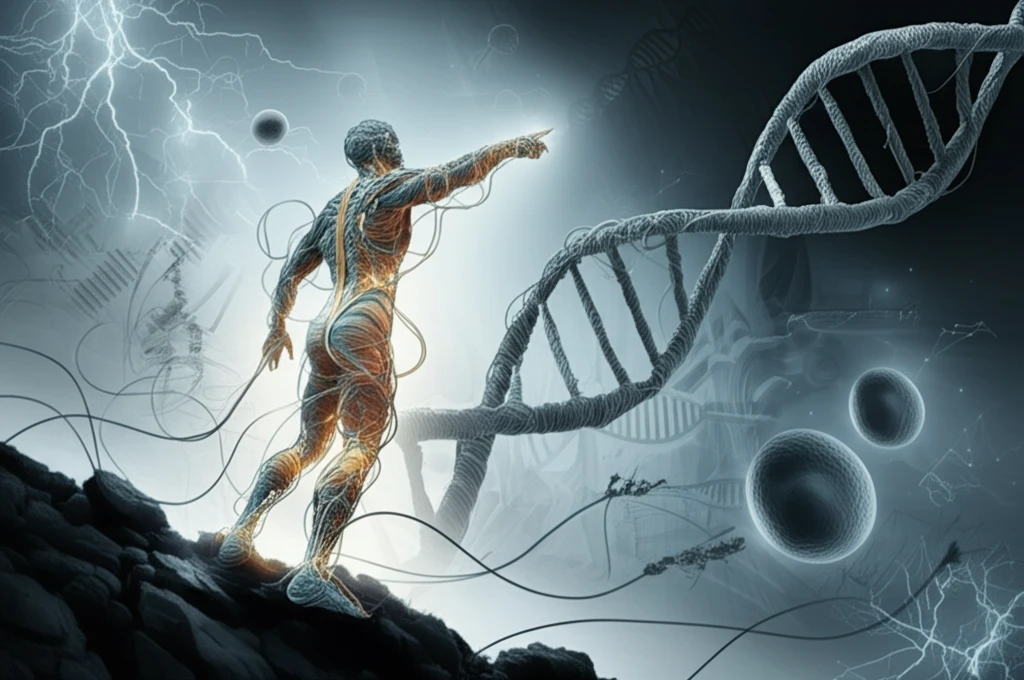
Unlock Longevity: How Growth Hormone and IGF-1 Impact Your Lifespan
"Explore the science behind growth hormone, IGF-1, and aging, and discover how these factors influence longevity."
The quest for a longer and healthier life has captivated humanity for centuries. While the mythical fountain of youth remains elusive, scientific research continues to uncover key biological processes that influence aging. Among these, the growth hormone (GH) and insulin-like growth factor 1 (IGF-1) axis stands out as a critical regulator of growth, metabolism, and ultimately, lifespan.
The GH-IGF-1 axis, responsible for postnatal growth and metabolic regulation, naturally declines as we age. This decline leads to changes in body composition and physical frailty. However, studies have revealed a surprising twist: suppressing this axis can actually extend lifespan in various organisms.
This article delves into the intricate relationship between growth hormone, IGF-1, and aging. We'll explore the latest research, examining how interventions like dietary restriction and genetic manipulations can impact this pathway and potentially unlock the secrets to longevity.
The GH-IGF-1 Connection: How It Works

Growth hormone (GH), secreted by the pituitary gland, is essential for postnatal growth. Its anabolic effects are largely mediated by insulin-like growth factor 1 (IGF-1). While GH also exerts direct effects on peripheral tissues, IGF-1 plays a central role in this complex hormonal interplay. Understanding how these hormones interact is crucial to grasping their impact on aging.
- GH Decline: Secretion peaks around puberty and declines with age.
- Impact on Body: Leads to decreased muscle mass and increased fat mass.
- Potential Consequences: Contributes to physical frailty and increased cardiovascular risk.
The Future of Longevity Research
The evolutionary view of aging suggests that pleiotropic genes influence growth, sexual maturation, and lifespan. Multiple genetic and environmental factors regulate GH and IGF-1 levels, making aging a complex genetic puzzle. As we continue to unravel the intricacies of the GH-IGF-1 axis, we move closer to understanding how to promote healthy aging and extend lifespan in humans. By carefully considering our environment, including dietary habits that impact IGF-1 levels, and by further investigating key downstream molecules like mTOR and FoxO, we can potentially unlock new avenues for clinical intervention and a healthier, longer life.
